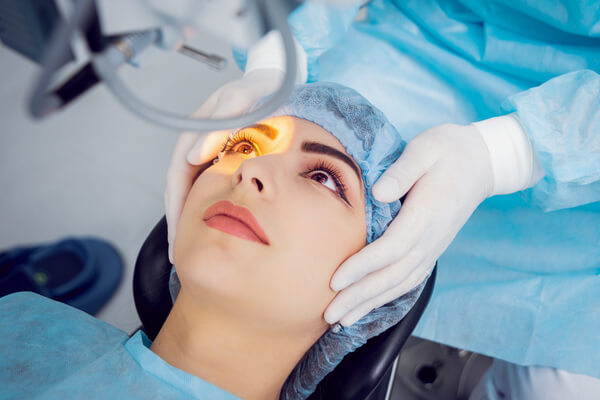
Healthcare is on the brink of transformation, driven by advances in medical treatments and technologies that are reshaping how we approach health maintenance. With breakthroughs ranging from pharmacology to specialized treatments, patients are benefiting from innovative methods that offer improved outcomes and enhanced quality of life. This article explores the future of healthcare and the role of cutting-edge treatments such as Tirzepatide in managing chronic conditions, alongside the growing importance of eye specialists in addressing complex ophthalmological issues.
The Evolution of Healthcare: A Focus on Innovation
In recent years, the healthcare sector has witnessed rapid advancements that are changing how we approach disease prevention, diagnosis, and treatment. The integration of artificial intelligence (AI), biotechnology, and novel pharmacological treatments is accelerating the pace of medical progress. Personalized medicine, in particular, is gaining traction, allowing healthcare providers to tailor treatments based on an individual’s genetic makeup, lifestyle, and specific health conditions.
These innovations have opened new possibilities in managing chronic illnesses like diabetes, cardiovascular disease, and neurodegenerative disorders. As life expectancy increases and the global population ages, the demand for effective health maintenance strategies has never been greater. Emerging medical treatments are playing a crucial role in addressing this challenge, with a significant focus on managing chronic conditions.
Tirzepatide: A Breakthrough in Diabetes and Weight Management
One of the most promising developments in the treatment of chronic conditions is Tirzepatide, a novel medication that has shown remarkable potential in managing type 2 diabetes and obesity. Developed as a dual agonist, Tirzepatide targets two critical hormones involved in blood sugar regulation and appetite control: glucagon-like peptide-1 (GLP-1) and glucose-dependent insulinotropic polypeptide (GIP). By activating both pathways, Tirzepatide improves blood sugar levels and promotes significant weight loss, addressing two major risk factors for diabetes patients.
Clinical trials of Tirzepatide have demonstrated unprecedented results, with some patients experiencing a reduction of up to 20% in body weight. The drug’s ability to target both glucose control and weight management simultaneously represents a significant advancement in diabetes care, offering patients a comprehensive approach to managing their condition. This has broad implications not only for diabetes treatment but also for addressing related cardiovascular risks and metabolic disorders.
As healthcare providers increasingly adopt Tirzepatide as part of their therapeutic arsenal, the future of diabetes management looks more optimistic. The drug’s effectiveness in both reducing blood sugar and aiding in weight loss highlights the potential for similar dual-target treatments in other chronic diseases. This emerging class of medications could dramatically improve health maintenance by offering more efficient, multifaceted solutions for managing complex conditions.
Eye Specialists: The Expanding Role in Vision and Health Maintenance
Another area of healthcare undergoing significant transformation is ophthalmology. Eye specialists, also known as ophthalmologists, are playing an increasingly pivotal role in health maintenance, particularly as the prevalence of eye diseases continues to rise. With conditions like age-related macular degeneration (AMD), diabetic retinopathy, and glaucoma becoming more common due to an aging population and the rise in chronic diseases such as diabetes, the need for specialized eye care has never been more critical.
Advances in diagnostic tools, such as optical coherence tomography (OCT) and AI-powered imaging systems, are enabling eye specialists to detect eye diseases at earlier stages, allowing for more effective interventions. Moreover, innovative treatments like gene therapy and biologics are offering new avenues for managing previously untreatable or difficult-to-treat conditions.
For instance, anti-VEGF (vascular endothelial growth factor) injections have revolutionized the treatment of retinal diseases by halting abnormal blood vessel growth and preventing further vision loss in patients with AMD and diabetic retinopathy. These injections, coupled with advancements in laser therapies and surgical techniques, have significantly improved outcomes for patients suffering from serious eye conditions.
Looking ahead, the role of eye specialist is expected to expand as the integration of technology continues to enhance the precision of treatments and diagnostics. Telemedicine, for example, is opening up new opportunities for remote eye care, allowing patients to access specialized services without the need for in-person visits. This is especially beneficial for individuals living in remote areas or those with limited mobility, ensuring they receive timely care for vision-threatening conditions.

Personalized and Preventive Care: The Future of Health Maintenance
The future of healthcare is increasingly moving toward personalized and preventive care models, which emphasize the early detection and management of health issues before they escalate into more serious conditions. Personalized medicine leverages a patient’s genetic information, lifestyle data, and health history to tailor treatments specifically to their needs, improving the efficacy of interventions and reducing the risk of adverse side effects.
Preventive care, on the other hand, focuses on maintaining health through proactive measures such as regular screenings, vaccinations, and lifestyle modifications. Emerging technologies, including wearable health monitors and AI-driven predictive analytics, are making it easier for individuals to stay informed about their health and take action when necessary. These technologies can detect early signs of disease, monitor vital signs in real time, and even predict potential health risks based on patterns in the data.
As healthcare systems shift toward these models, patients are likely to experience improved outcomes, fewer hospitalizations, and enhanced quality of life. The future of healthcare will not only involve treating illnesses but also preventing them through the integration of cutting-edge medical treatments and continuous health monitoring.
Conclusion
The future of healthcare is bright, with emerging medical treatments like Tirzepatide offering innovative solutions for managing chronic conditions, and eye specialists playing an increasingly important role in vision care and overall health maintenance. As personalized and preventive care models continue to evolve, patients will benefit from more tailored, proactive approaches to health management, ultimately leading to longer, healthier lives.
As we move forward, the integration of technology and medical innovation will continue to drive improvements in healthcare delivery, making it possible to address complex health challenges more effectively and efficiently than ever before. These advancements represent a significant leap forward in the quest to revolutionize health maintenance and ensure better outcomes for all.

